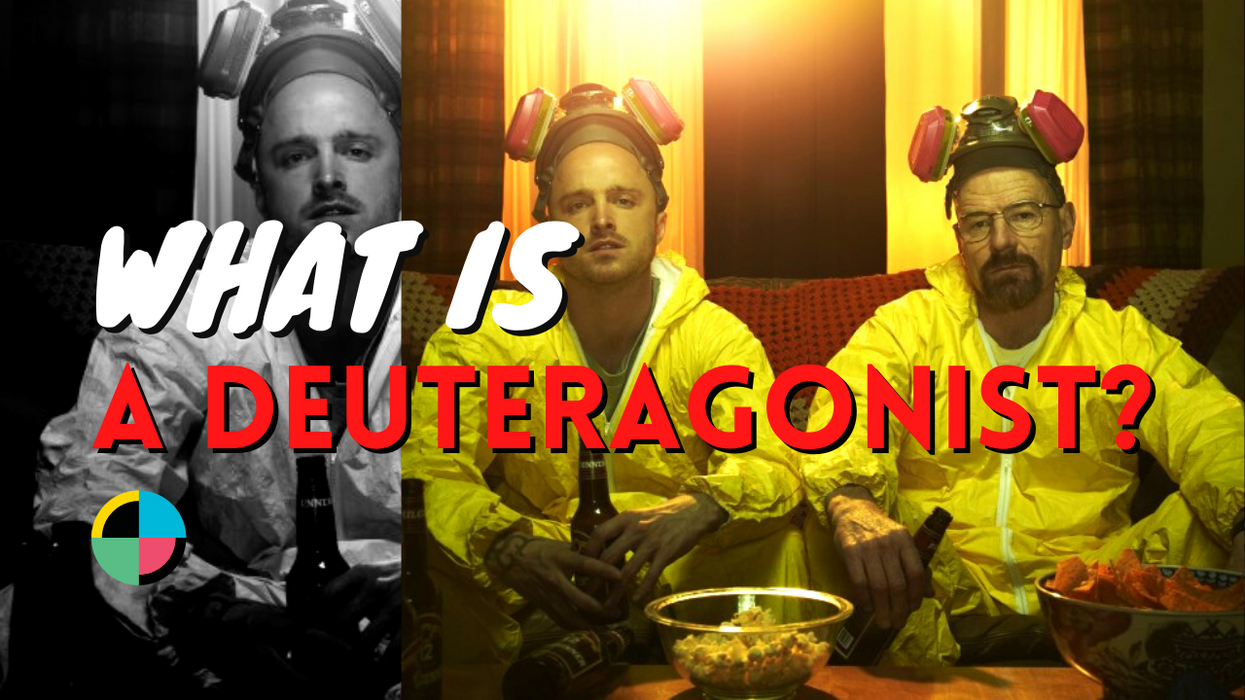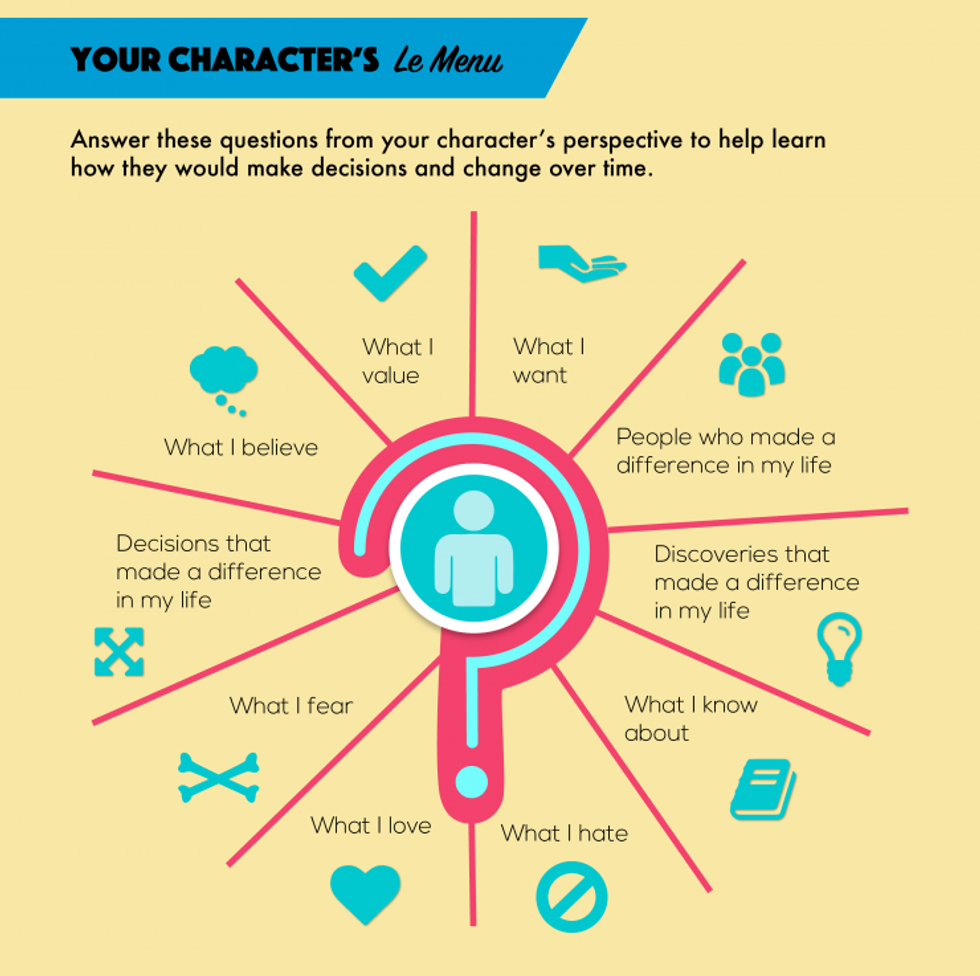Our Favorite Lessons on Screenwriting from 'Breaking Bad'
Breaking Bad left an indelible mark on television forever. It was exciting, emotional, and dangerous. But what did we learn?

When Walter White stepped out in his whitey tighties he became part of the cultural lexicon. He and meth became household names as we watched him cook his way into oblivion. But the real takeaway from Breaking Bad was the excellent writing. It had an interesting structure, unexpected twists, and lots of well-developed characters.
Today, we're going to go over the writing lessons in Breaking Bad. We'll go through ten of the biggest ones, watch some clips from Breaking Bad, and relive our best days in the desert.
Come with me if you want to cook meth.
I meant...learn to write.
What writing lessons can we learn from Breaking Bad?
Watching a great television show can be intimidating. When the writing is *THAT* good, it can be daunting to start your own screenplay or to learn how to write a tv pilot. But even Breaking Bad was only an idea one. A joke kicked around by Vince Gilligan when he was out of work. It was a spark and he wrote the fire. So, when you get down or feel like you can't make anything this good, finish a first draft. Rewrite. Then, see where it takes you.
And follow these lessons.
Hook them right away
The opening of Breaking Bad might be the best of any TV show ever. It grabs you right away. You HAVE TO know how this guy got in the desert with his pants flying in the air. That doesn't mean you should start your pilot with a flash-forward. It just means you should be creative when introducing your characters and world. Make some noise and give us a scene that shakes us up.
Allow your characters to change
One of the things that drew Bryan Cranston to the show is that he was used to being in projects where characters stayed the same. The ability to not only arc Walter, but to change him into Heisenberg, was unique and special. when you're writing, set your characters up to be different people. Let yourself take that complicated leap and your actors and viewers will thank you.
Don't shy away from backstory
One of the biggest breakthroughs they had in the writer's room of Breaking Bad was when Walt refused to take the money from his rich friends. It was a moment where Walt let his own ego get in the way. And a moment that drew his continuation of the creation of meth and his personality. When you're crafting what happens in your season, don't be afraid to visit the character's past. Think outside the box. What decisions in the past or present can affect the future?
Role reversals
When we meet Walt, he's a good guy but actually a dark criminal. When we meet Jesse he's a criminal but he desperately wants to be Walt. These role reversals were key to making that show tick. Who can we meet that has a secret inside? How can we switch the expected tropes or norms to create something that much more engaging?
You don't have to like them
One of the WORST pieces of advice to arise in the current screenwriting climate is the idea of "likable" characters. People don't have to be likable, but they do have to be interesting. Walt becomes a real piece of shit by the end of the series. And, if you think about it, even his "I am the one who knocks" speech is sort of an abusive jab at Skylar. He's cooking meth and ruining people's lives. But he's interesting. Always be interesting. And don't worry about if the character is likable.
Writing is structure
If you read No Film School regularly, then you know I am obsessed with screenplay structure. Breaking Bad writes in five acts. And they outline using a corkboard and notecards. They make sure every beat services plot and story. So plan each of your works out meticulously.
Great scenes need to fit a great story
We all know we are supposed to "kill our darlings," but do we actually do it? Sure, you might have a great scene written, but if it doesn't carry the story, and you can't repurpose it, then it might be time to leave it on the cutting room floor. This can be hard because nothing is scarier than the blank page, but you owe it to yourself to rely on your creativity. That means cuts.
Question good and bad ideas
On Breaking Bad, the writers constantly asked: "Where's THIS CHARACTER's head at?" You can learn a lot by getting in the headspace of everyone in the scene. Actions need to be motivated, so if you take a minute to walk in someone's shoes, you can determine actions, reactions, and next moves. This will keep your work true to the character and true to the story.
Smart is good
Tell me if this has happened to you: you write a bad guy and they kind of seem dumb, because, at the end of the day, your good guy has to thwart that bad guy. Well, Gus Fring is super smart. and when his face melts off, we love it. Because Walt is also a smart guy, and outsmarting Gus makes us understand just how smart Walt is at the end of the day. Don't make your characters dumb or easily surmountable. Challenge yourself to write smart characters that get outsmarted by our characters. It's hard, but it will be worth it.
Look at your tools and options, then make use of them
"Write what you know" is kind of dumb. You should write what you want to explore because once you enter the world you need to steep yourself in it. But there is a value in doing a self-check. What do you know about? I like to use our Le Menu for ourselves. Learn about what you have in your life and use it to write your story.
BONUS LESSON: Love "having written"
Writing is hard! So take joy in any pages or paragraphs that push this story forward. Reward yourself with a cookie or a box of cookies. Just find a way to love the process and to trust the process. Your story is a journey. Love where it takes you, and feel free to complain about the turns in the comments. Find your happiness and chase it.
What's next? Learn writing lessons from Game of Thrones!
We're living in the Golden Age of television. There's been an embarrassment of riches of shows, and all of them come with their own lessons. We recently ran an entire series on how to write a tv pilot and a lot of the reactions to that article wants us to go over some of the greatest tv series of all time. We touched on The Office last week, and today we want to highlight ten writing lessons you can get from Game of Thrones.
So click the link to learn more!












